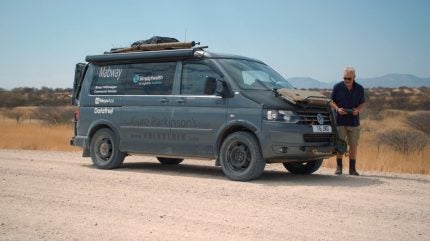
Something a little different to start with this week: Guy Deacon’s 18,000 mile journey with Parkinson’s. Travelling such a distance is a daunting prospect. Five breakdowns, and 3,650 prescription pills later, he finished his African odyssey in a VW Transporter. Acting as more than a slogan or advertising tagline, Volkswagen’s ‘Drive Bigger’ motto is a long-term vision for the brand and company – it has certainly been achieved by Guy Deacon. Over the past year, the retired British army officer set out to take on the challenge of Africa’s unique and vast landscapes, travelling solo down the west coast of Africa in his 4×4 VW 5.1 Transporter. The journey saw him driving across 25 international borders through the Sahara Desert, Morocco, Western Saharah, Mauretania, The Sahel in Mauritania, Senegal, and across Namibia’s Namib Desert which has some of the world’s highest sand dunes. What made this even more inspiring was that Guy completed his journey while suffering from Parkinson’s disease – the fastest-growing neurodegenerative illness worldwide with no known cause or cure. The condition means Guy had very little use of his hands, difficulty moving his limbs, and poor spatial awareness. He frequently had to stop to sleep, or appeared drunk with slurred speech when his medication ran out. Guy wanted to show that life doesn’t have to end with a Parkinson’s diagnosis and that nothing is impossible if you put your mind to it.
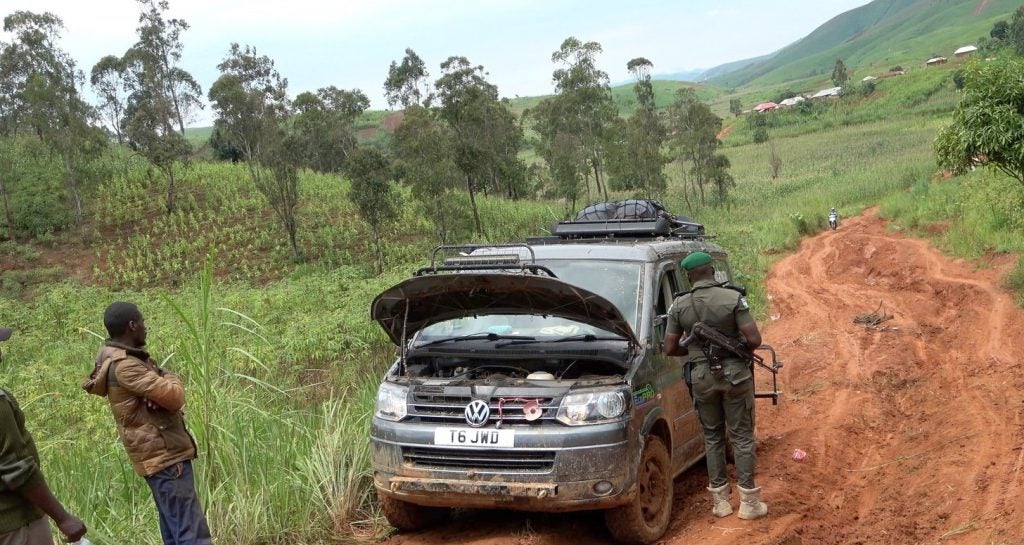
Diesel hanging on

Discover B2B Marketing That Performs
Combine business intelligence and editorial excellence to reach engaged professionals across 36 leading media platforms.
March diesel share of Western Europe’s car market fell marginally to 15.1%, according to GlobalData. February’s diesel share of new car sales in the region was revised down marginally (to 15.3%) while March’s provisional result indicates a penetration rate of 15.1%. All markets have lost diesel share over the last year, but in around half of the cases this was one percentage point or less, indicating a slow ramp-down for the diesel market. Belgium and Portugal appear to have seen the largest decline in share terms, both falling by around six points versus March 2023. Germany, by contrast, has seen diesel penetration fall by just 0.1 percentage point over the last year, maintaining the strong attachment to diesel in that market for drivers of larger premium vehicles. France and Italy lost between four and five percentage points of diesel over the last year and have seen rapid declines, exacerbated by those markets being dominated by smaller segment vehicles, in which the economic case for diesel is now weak and where many diesel powertrains have been deleted in recent years.
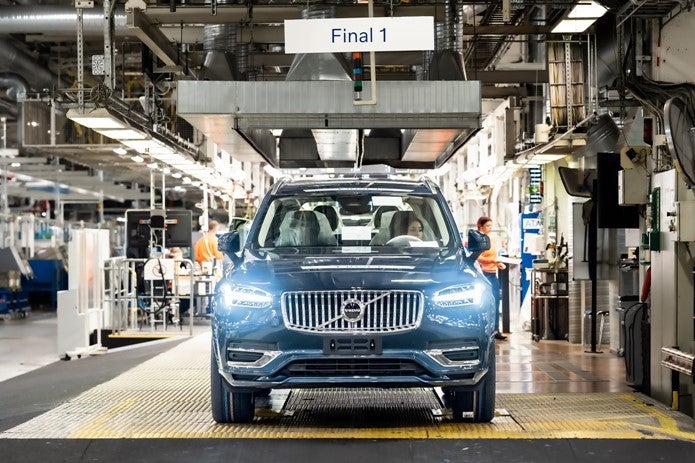
Opportunities with H2
Hexagon Purus manufactures high pressure Type 4 cylinders and hydrogen infrastructure, which are used to transport and store hydrogen for customers in the industrial and mobility sectors. It also manufactures battery energy storage systems and does full vehicle integration for battery and hydrogen electric vehicles. Morten Holum, Hexagon Purus’ CEO, tells Just Auto about the role for hydrogen in the global challenge to decarbonise the transport sector.
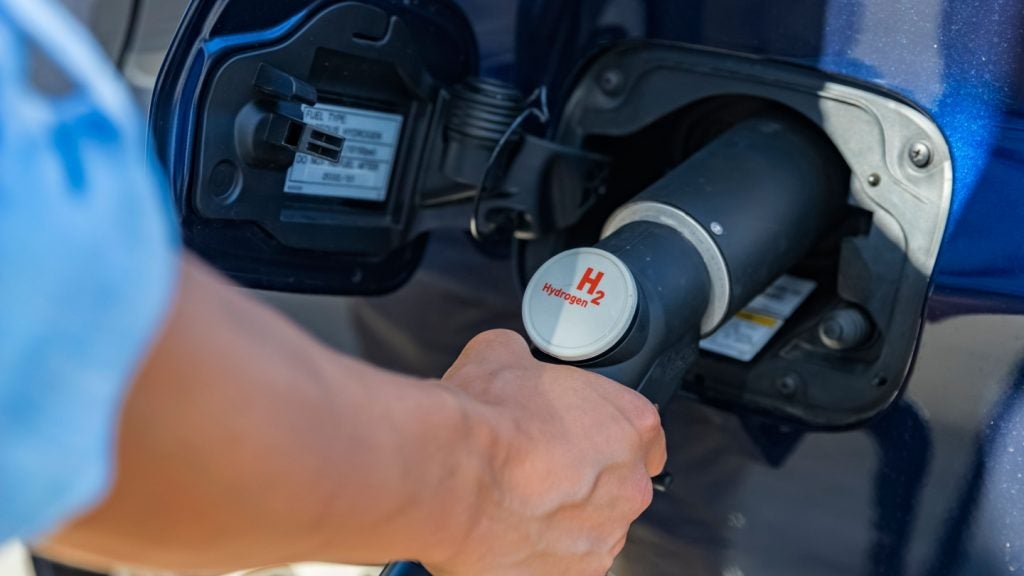
Steady as it goes
The global light vehicle market remains steady in March, according GlobalData. The Global Light Vehicle (LV) selling rate stood at 85 million units/year in March, broadly in line with the previous month. 8.0 million vehicles were sold last month, a 2% improvement year-on-year (YoY), with year-to-date (YTD) sales up over 4%. It was a mixed picture at a regional level in terms of selling rate evolution. In the US, the selling rate was a little lower month-on-month (MoM), though it remains solid, supported by continued easing of prices and the increasing of incentives. China’s selling rate accelerated from a weak February, while Europe saw a moderate decline in selling rates.
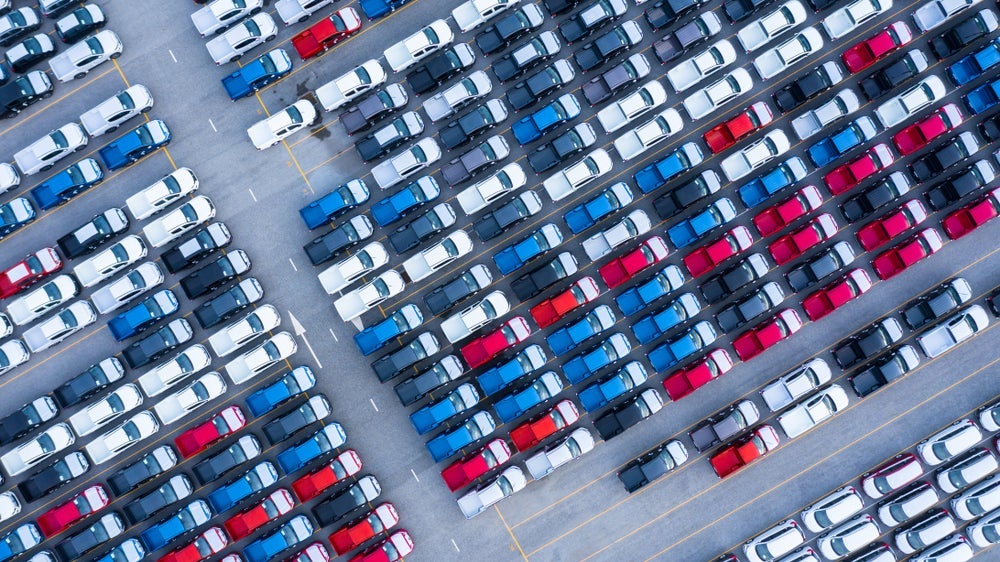
Upbeat Bosch
Bosch laid out its future roadmap this week during its annual press conference for Q1 2024, despite a subdued forecast that anticipated stagnating vehicle production and workforce cuts. Among the group’s achievements last year, Bosch said it had filed more patents in Germany than any other company, including in the field of AI. Included in its ambitions, Chairman Stefan Hartung said the firm wanted to achieve a competitive position among the top three suppliers in its key markets in all regions of the world. While the company would need to restructure to keep pace with its peers in a competitive landscape, Hartung said it was pursuing its strategy and “taking a multi-pronged approach: investing and divesting can be two sides of the same coin.” Key items highlighted it its Q1 2024 conference included the news that it is launching around 30 production products for EVs, having estimated that 70% of all new cars in Europe will likely be pure electric by 2030.
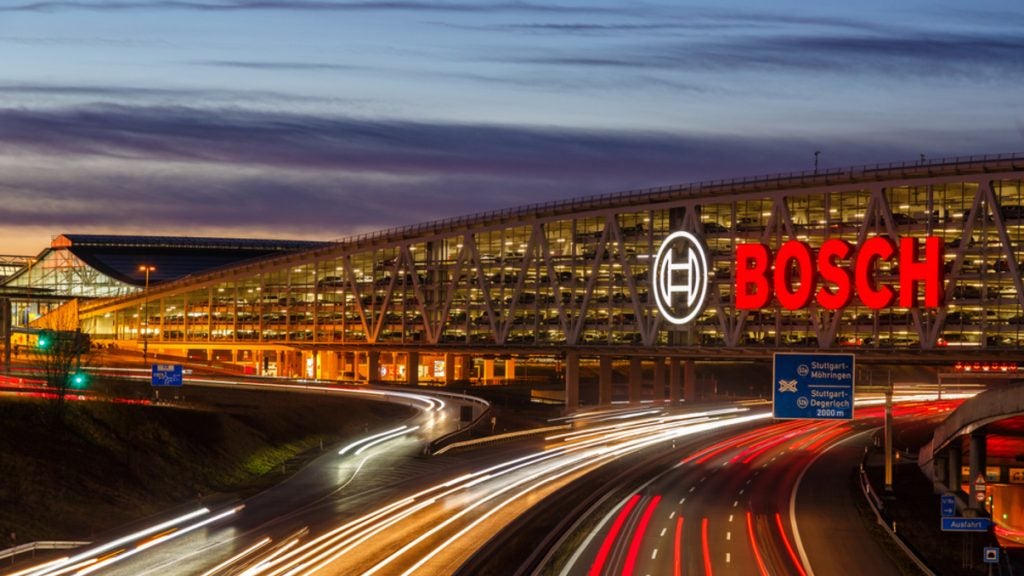
Fuso e-truck widens reach
Hizon, Daimler Truck’s newest brand, has announced the Canadian launch of its battery electric Class 4-5 trucks which, though it isn’t mentioned in the press release, are based on the Fuso e-Canter with detail cab styling changes. Rizon is making its debut at Truck World in Toronto from 18 to 20 April with preorders to start next June. The Rizon brand was launched south of the border in the US in April 2023 at the ACT Expo in Anaheim, California, and operating “on American streets “for a diverse range of customers”, according to Daimler Truck. Meanwhile, also this week, Daimler India Commercial Vehicles (DICV) announced the launch of the all electric, light duty redesigned eCanter. This is the first DICV battery electric commercial vehicle to be offered in the country and is also part of a wider company move into the light duty truck segment. The e-Canter won’t, however, reach dealer lots for six to 12 months.
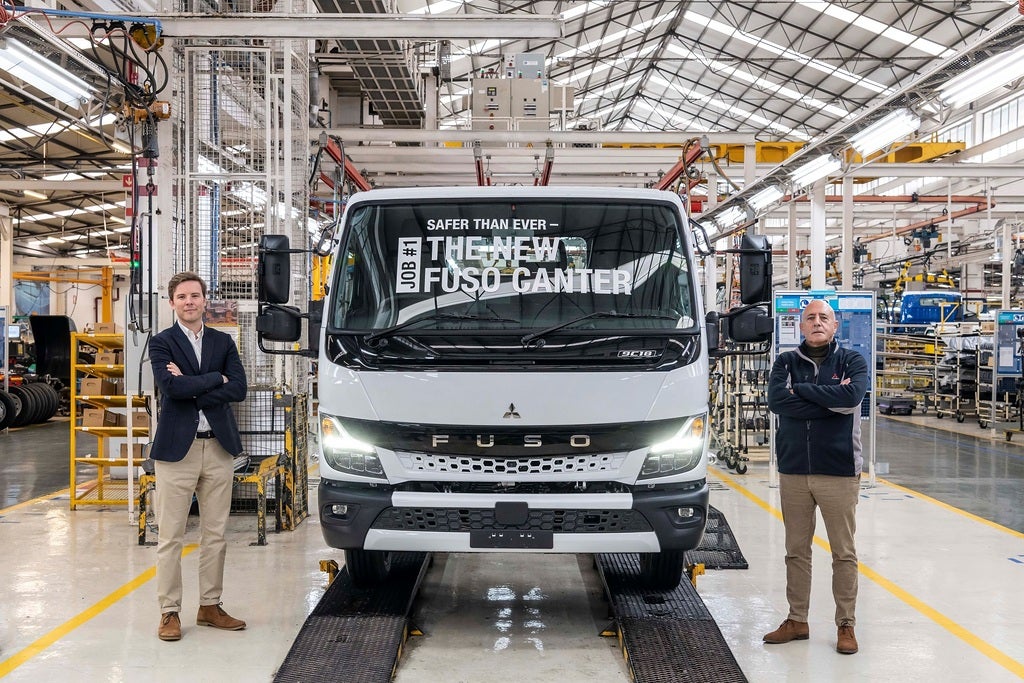
Merc’s EV van concept
Mercedes-Benz Vans has worked with Berlin based cargo bike maker Onomotion on its Sustaineer (Sustainability Pioneer) technology demonstrator “providing an insight into what sustainability could look like in the delivery transport of the future”. The electric van based on the already on sale eSprinter combines “a variety of innovative concepts for decarbonising the entire vehicle life cycle, reducing resource consumption, and increasing the circular economy, as well as improving the quality of life and well being of the driver”. The ‘efficient logistics concept for last mile delivery with zero local CO₂ emissions” combines a van EV and electric bike “to create a seamless supply chain”. The van is a ‘mobile micro depot which brings pre packaged goods in special containers to cargo bikes which then take care of the final delivery trip to the buyer’s door.
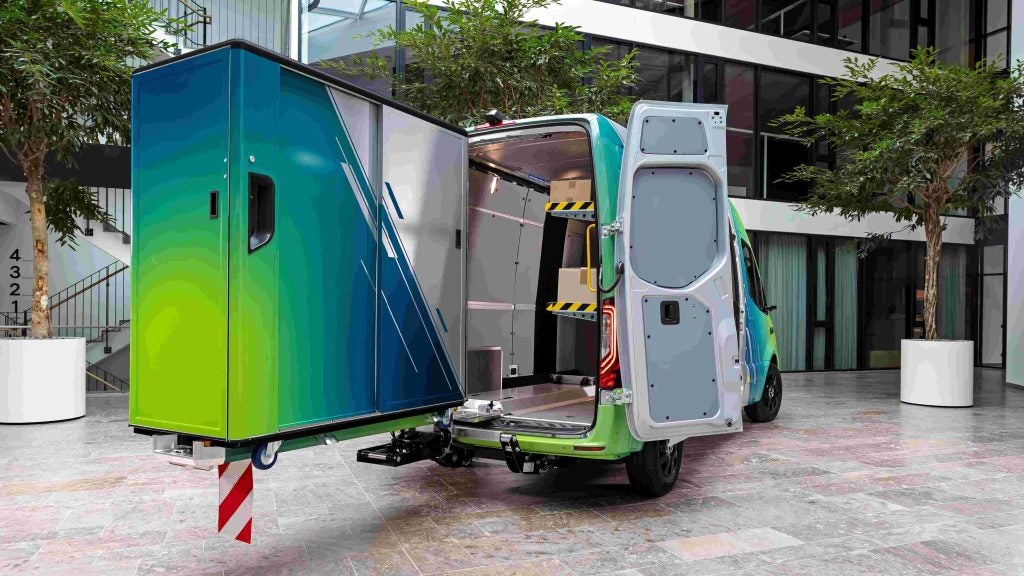
Conti troubles analysts
German automotive supply giant Continental released its preliminary figures for Q1 2024 – and they disappointed analysts. Revenue and profit margin were below market expectations. It cited price negotiations with customers, labour inflation and an unfavourable product mix mainly in North America. It added that FX (currency exchange) “continues to be a burden.” Q1 2024 sales were approximately €9.8 billion, falling short of consensus forecasts of €10 billion with an adjusted EBIT margin of 2%, below the consensus forecast of 3.7%.
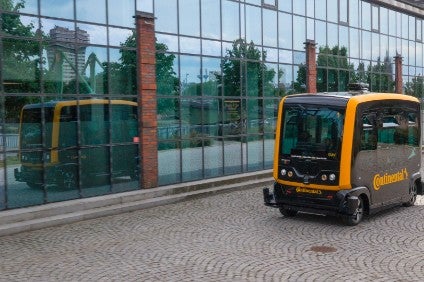
Giddy-up Horse
Renault Group’s new powertrain tech firm Horse has started making its Power Electronics Box (PEB) in Aviero, Portugal. Created last July, Horse focuses on the development, production and supply of next-gen low emission hybrid and thermal powertrains. The PEB is a major component in the value chain for hybrid vehicle powertrains, responsible for managing the two electric motors in all of Horse’s hybrid (HEV) and plug-in hybrid (PHEV) systems.
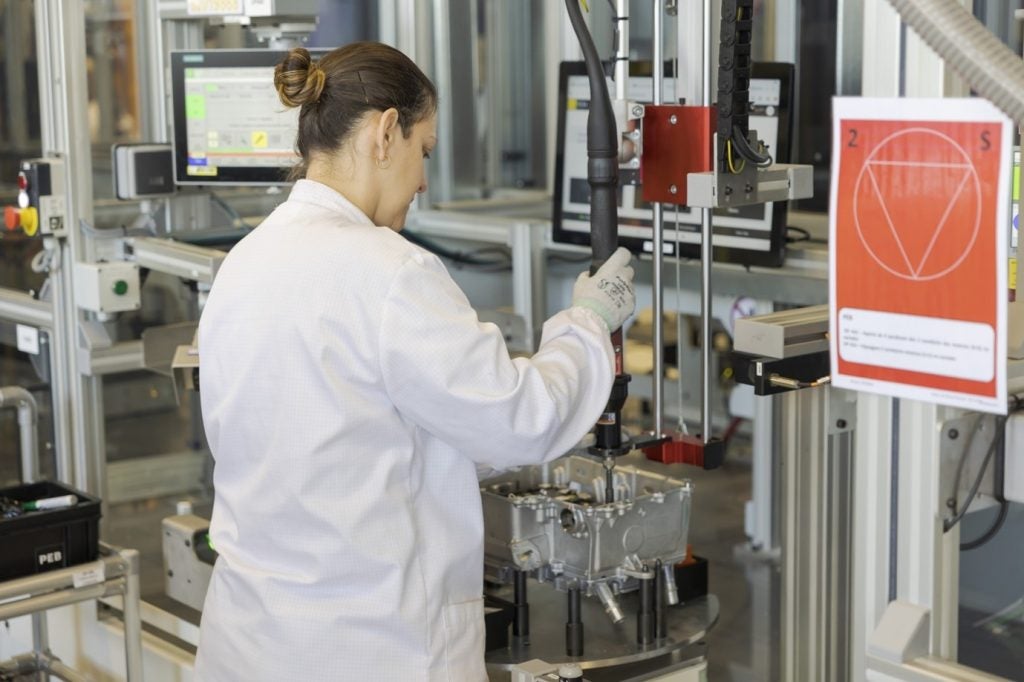
Honda’s China BEVs
Honda Motor said it would launch a new line of battery electric vehicles (BEVs) in China later this year, called Ye, built on a new dedicated platform developed in China. The automaker plans to begin selling the first models in the new series, the YE P7 and the Ye S7, later this year, to be followed by the Ye GT in early 2025. All six new models were scheduled to be on sale by the end of 2027.
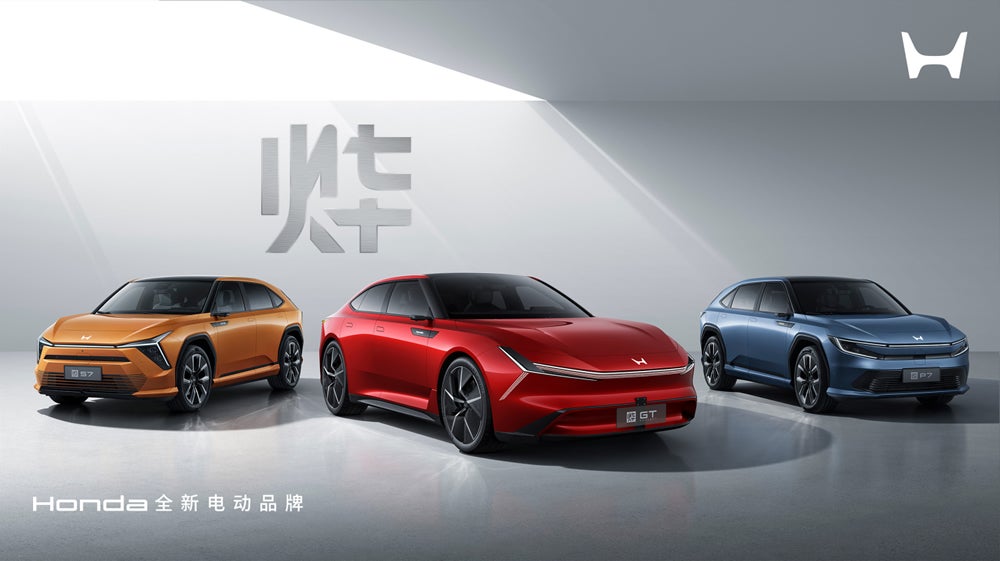
Korean battery bits
Korea Precursor was scheduled within weeks to begin commercial production of precursor materials for electric vehicle (EV) batteries at a newly built plant in South Korea, helping to reduce the industry’s dependence on Chinese supply chains. The joint venture was established in 2022 between LG Chem and Korea Energy Materials (KEMCO), a subsidiary of Korea Zinc. The facility in Ulsan was completed last March, a month ahead of schedule, and since successfully completed test production. The JV partners invested KRW200bn (US$146m) in the plant which has capacity for 20,000 tons of materials per year.
JLR volts storage
Tata-owned Jaguar Land Rover (JLR) has announced it has partnered with energy storage start-up Allye Energy, to create a new Battery Energy Storage System (BESS), using second life Range Rover and Range Rover Sport PHEV batteries. The BESS weighs less than 3.5 tonnes, allowing it to be fully portable or stationary, to provide energy storage for retailers or JLR sites. This, JLR says, would help JLR’s network of over 3000 retailers better leverage renewable energy such as solar and act as energy buffers to support fast charging where the local grid connection may be restricted. The unit will also be commercially available for use outside of JLR. JLR says each BESS utilises seven second-life batteries, and can store 270kWh of energy – nearly a month’s worth of power for the average UK home.
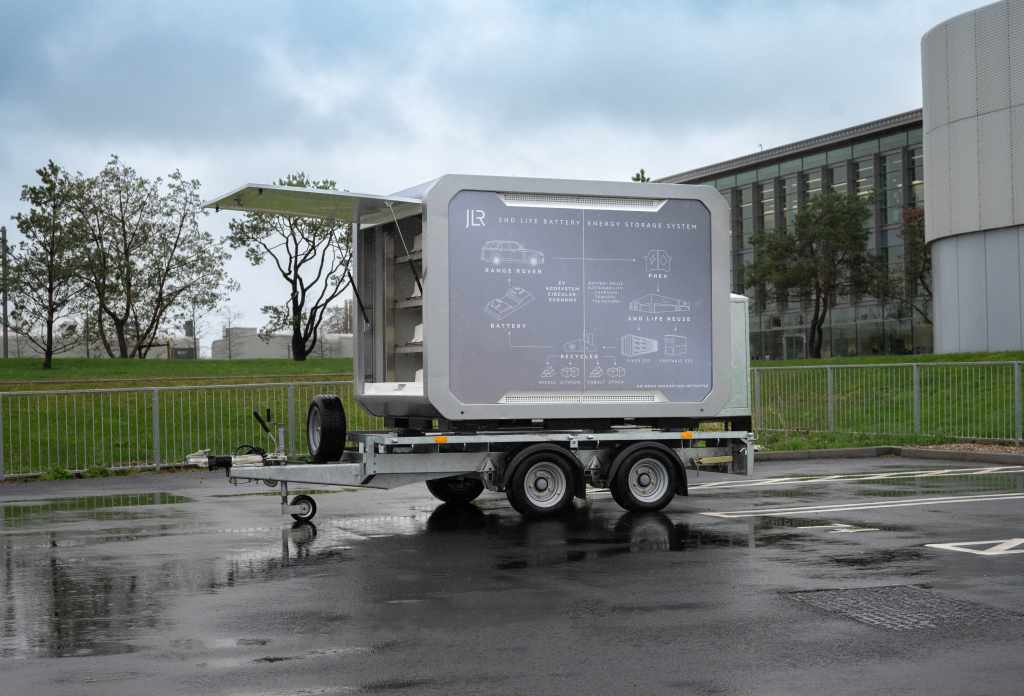
Have a nice weekend.
Graeme Roberts, Deputy Editor, Just Auto






